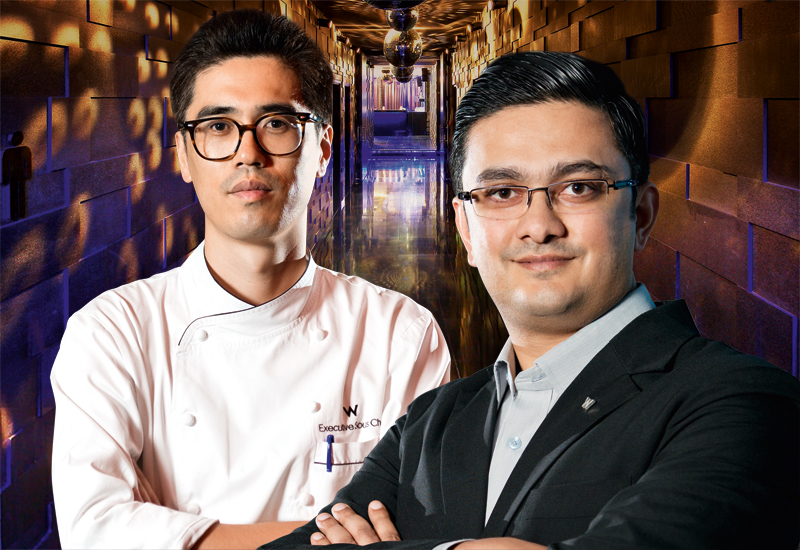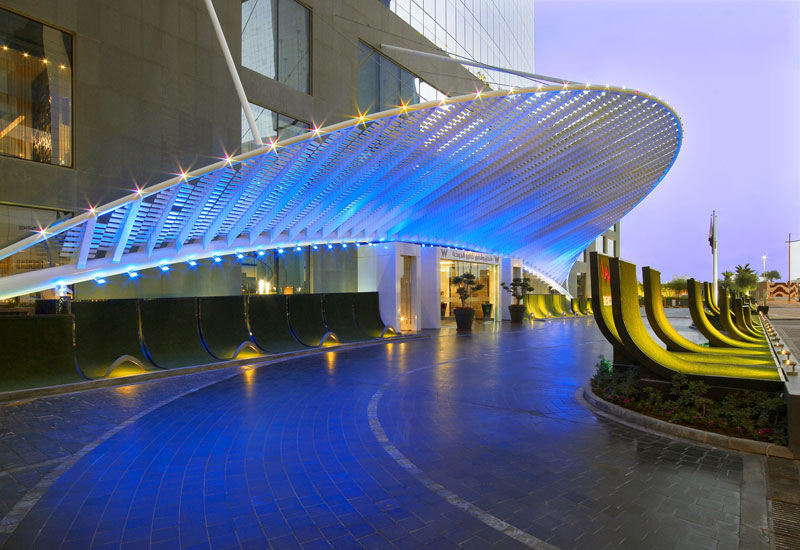He adds: “Everything has started from the hotel; the restaurants, about six to seven years ago, started getting famous for their delivery and consistency in terms of the food, product and service. That was like the incubator for the entire F&B scene that we see today in Qatar.”
Narayanan, who joined the W Doha in 2012, reveals what the team did during difficult times to ensure people kept coming back. “We were the first to introduce ‘Supper Club’ — an early-evening dinner priced at US $33 (QAR 120) for a three course menu, which still runs,” he says. “But the menu is à la carte and the portions remain the same.”
Gyu adds: “Guests are getting à la carte dishes from the menu at nearly half the price. This was innovative, [and worked so well that] we were discussing how to manage the flow of guests.”
“But then again, you have to remember it was not that deal that saved us; if we left it to that offer alone we would have [made] a loss,” Narayanan says. “So, we have to look at it from a holistic perspective – guests will spend at other outlets as well. Sometimes you have discount menus, which give you half the portions of the dish, but that does not bring the people back.”
Another campaign that spelled success for the duo was the introduction of ‘Gin ‘O’ Tonic’. “It was our take on the happy hour, which was quite — and still is — very famous, amongst the expats in Doha,” Narayanan says.
Allocation of finances was a key driver behind all the elements to come together successfully. And both Narayanan and Gyu say the owners have been instrumental in the success. “When we needed investments, our owners have always supported us. Obviously none of this would have been possible without their investment. The owners are not just open-minded but are also business-minded ,which works well together,” Gyu says.
Narayanan adds: “Proper planning has gone into everything. When we looked at event and exhibition catering, we sat down to see what the requirements were and what budgets we needed. The DECC has no on-site kitchen, for instance. So, we then had to study how to transport the food from the hotel to the site.” He also tells Hotelier Qatar that the W Doha owns its own trucks for food transportation. “Our return on investment [on the events and catering] was within the first few months. There is nothing more to come —whatever we invested we have got back. In terms of food and beverage revenues, we are one of the best; if we only talked about the hotel, we would not have been where we are,” says Narayanan.
He says a lot of effort and finance has gone into ensuring the upkeep of the F&B outlets in the hotel. “When you talk about investments, a significant amount has gone into our existing F&B outlets. If you look at this restaurant [Market by Jean Georges], it has been open for eight years, but it does not look more than six months old. Every year we invest an amount to maintain the look and feel of our restaurants.”
The two nightlife venues at the hotel — Crystal Lounge and Wahm — have also undergone refurbishments, with the latter undergoing a restructuring from the ground up. “Wahm has undergone a complete revamp, and we are opening up ahead of our schedule,” Narayanan says with confidence.
He adds: “Market by Jean-Georges does 250 covers every night and, if you add breakfast and lunch, it surpasses the 1,000 cover mark; Spice Market does about 300 covers every night.”
The high numbers are due to the relationship each restaurant general manager has carved out with its loyalists. “Sustainability comes from the involvement of the restaurant general managers. They are well-known in the market – guests call and text them directly to make reservations. They take more reservations than the reservation agents,” Narayanan claims.
Gyu checks his smartphone and adds to the discussion stating: “My sous chef in Market by Jean Georges spoke to 10 tables last night. We always do this, and then they share their feedback with me, and that isn’t even a front office staff. Over here, we have a culture where everybody is encouraged to speak to the clients. Ask them what’s good and, more importantly, what’s not good, and why. Then we make sure to make the changes; our reaction is instant.”
Looking forward, the F&B team is weighing up its options for 2017, bidding for new events and business. “We are looking toward next year, new partnerships and a few new projects in the pipeline. It is going to grow, there is no going backwards or sideways, that’s for sure,” Narayanan concludes.

| Advertisement |










 Search our database of more than 2,700 industry companies
Search our database of more than 2,700 industry companies









